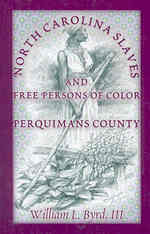- ホーム
- > 洋書
- > ドイツ書
- > Social Sciences, Jurisprudence & Economy
- > Politics, Society, Work
- > political science
Full Description
This book explores and evaluates non-territorial autonomy (NTA), an important modality of ethnic and religious diversity management. Whereas multicultural liberal democracies sincerely champion equality and individual human rights, they often have considerable difficulty in accommodating culturally diverse minority communities. In most cases, minority communities do not reside within a compact space, making any territorial representation impossible. This brings into focus modalities of NTA as a possible alternative approach. NTA takes a variety of different forms, such as consociationalism or national cultural autonomy, and also encompasses other forms of representation, such as frameworks for accommodating indigenous peoples, juridical autonomy extended to religious communities, or elements of some models of multiculturalism. Using both theoretical and empirical approaches, and also including the work of legal practitioners, the essays within this volume examine the challenges and possible solutions offered by different NTA models for the effective participation of minorities in public life, addressing issues such as the limits and/or possibilities of implementing NTA models in liberal democracies, the extent to which NTA approaches can serve the goals of European integration and the European minority protection framework, and the possible role of NTA in resolving protracted territorial conflicts.
Contents
Contents: Rt Hon. Charles Clarke: Preface: Using the Ideas of 'Non-Territorial Autonomy' to Avoid Violent Conflict and Meet the Modern Challenges of Nationalism - Ephraim Nimni: The Conceptual Challenge of Non-Territorial Autonomy - Piet Goemans: National Cultural Autonomy: Otto Bauer's Challenge to Liberal Nationalism - Yoav Peled: Challenging Zionism through Non-Territorial Autonomy: From Vilna to Nazareth - John Coakley: Non-Territorial Autonomy: A Non-Option for Northern Ireland? - Cengiz Gunes: Accommodating Kurdish National Demands in Turkey - Martyn Housden: The European Congress of Nationalities: A Transnational NGO Providing a Model for Today and Tomorrow? - Marina Germane: Paul Schiemann, Max Laserson and Cultural Autonomy: A Case Study from Interwar Latvia - David J. Smith: Challenges of Non-Territorial Autonomy in Contemporary Central and Eastern Europe - Alexander Osipov: Non-Territorial Autonomy as a Way to Frame Diversity Policies: The Case of Russia - Vadim Poleshchuk: Changes in the Concept of National Cultural Autonomy in Estonia - Balázs Dobos: The Role of Elections in Minority Contexts: The Hungarian Case - Katinka Beretka: National Councils of National Minorities in Serbia: Pros and Contras of an Ethnic Self-Governance - Julija Sardelić: The Roma Community Act in the Republic of Slovenia: Legal Implementation of Romani Non-Territorial Autonomy? - Marina Andeva: Challenging National Cultural Autonomy in the Republic of Macedonia - Stéphanie Chouinard: Is There a Right to Non-Territorial Autonomy in Canada? The Case of Institutional Completeness and Minority Language Rights.








